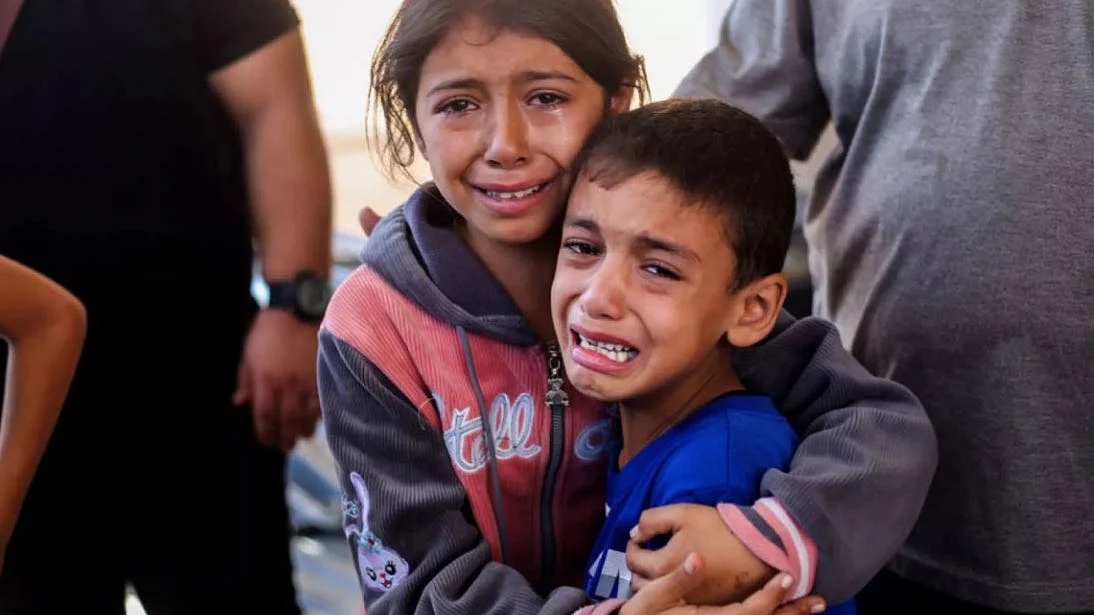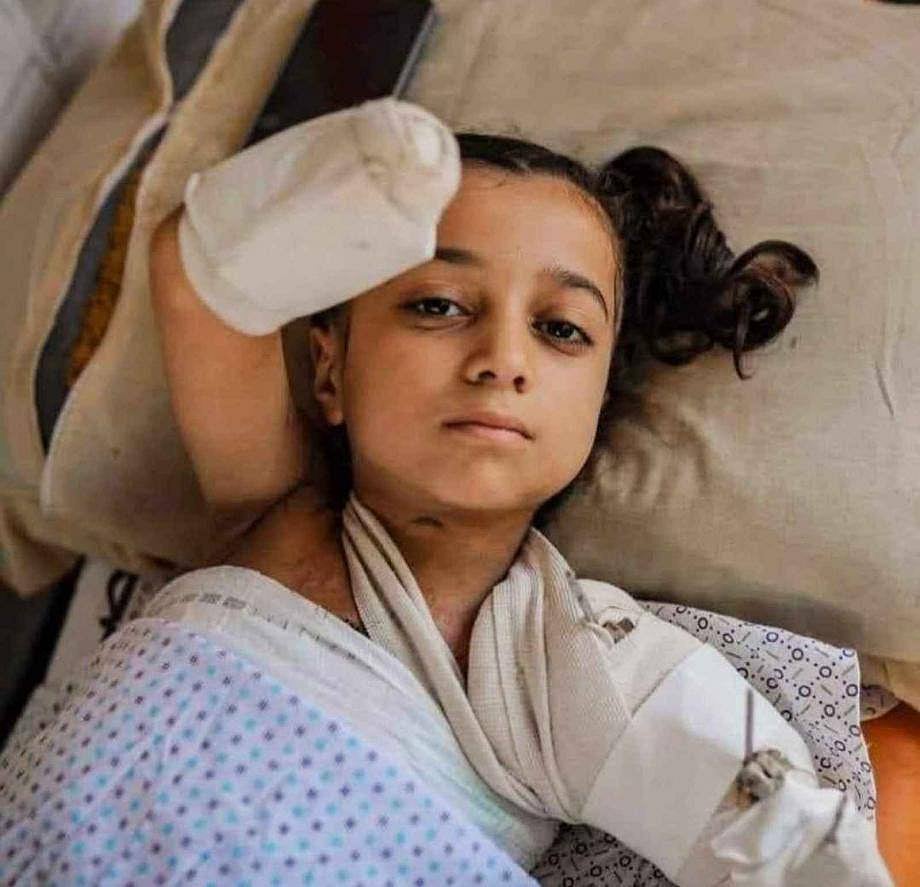UAE warns against Israeli annexing the West Bank, UN says world not doing enough for Gaza
Around 40,500 children in Gaza have suffered ‘new war-related injuries’ since October 2023; over half of these left the child disabled

The UN Committee on the Rights of Persons with Disabilities published a report on 3 September, Wednesday, focusing on some 90,000 disabled people in Gaza — a population that has steadily grown over two years, to include some 21,000 children — and berated the world’s nations for simply not doing enough.
Meanwhile, in Israel, citizens took to the streets in protest, looking to create a “day of disruption” for the Benjamin Netanyahu government, which has called up of tens of thousands of reservists for an expanded offensive in Gaza that has drawn global condemnation — and it likely to endanger the remaining living hostages still held by Hamas in a bid to decimate the militant group once and for all, per the right-wing coalition’s plan.
The UN Committee, a team of independent experts working with the UN Human Rights office, called on Israel to take steps to protect children with disabilities from attacks — and urged foreign countries, such as the US, that have taken in some people from Gaza for healthcare not to return them to Palestine while the conflict continues.

Israel did not turn up for the concerned hearings in August, said the committee, whose work is based on a convention on people with disabilities agreed upon by 193 nations — making it one of the most-adopted agreements on human rights.
Muhannad Salah Al-Azzeh, a member of the committee, noted that even at the best of times, people with disabilities — such as blindness, lifelong injuries or mental impairments — face “exclusion and discrimination”.
Now, he said, the situation in Gaza “very concerning” for people with disabilities, who must struggle just to get around rubble-strewn streets and in broken houses, with obeying evacuation orders and obtaining food and medical devices nigh impossible.
“We do believe that all state parties to the CRPD, they really failed in a way or another to fulfil their obligations to protect — and to ensure the minimum protection of — persons with disabilities in the emergency situation” in Gaza, he told reporters in Geneva by video, as the committee published a report that also compared the situation of the disabled community in North Korea, Finland, Kiribati and the Maldives, besides Palestine’s people.
Meanwhile, in Israel, desperate citizens said: “We have to take extreme action so that someone will remember. There's no such thing as a state abandoning its citizens” — this came from Yael Kuperman, a protester near the Knesset, interviewed by Israeli public broadcaster Kan.
This protest demonstration was initiated even as, hospital officials told the Associated Press, at least 24 people were killed in Palestine in strikes overnight into Wednesday, 3 September.
Nasser Hospital said it received 10 bodies, including one aid-seeker in Rafah and a child killed by a strike in southern Gaza. Shifa Hospital said the bodies of 14 people, including two children and four women, arrived on Wednesday, while Al-Quds Hospital said it received another person killed by Israeli strikes.
Israel claims that Gaza City — the largest city in all Palestine, counting both the besieged Strip and the occupied West Bank — is still a Hamas stronghold sited above what military officials allege is a vast underground tunnel network, still operation despite the IDF’s multiple raids earlier in the war.
The UN Human Rights Council has countered the claim by holding: "The goal of the Israeli government is abundantly clear: the destruction of life in Gaza."
Three non-governmental organisations have also highlighted how more than 3,700 Palestinians were killed over just 34 days. Amnesty International, Medicins sans Frontieres (Doctors Without Borders) and Medical Aid for Palestinians accused Israel of genocide — a charge it has previously denied.
“This is not merely a humanitarian crisis — it is a full-blown and man-made human rights catastrophe,” the statement said. “Expressions of deep concern' are not enough.”
It is noteworthy that photojournalist Mariam Dagga, one of several media personnel recently killed by Israel in a series of strikes on hospitals, used to freelance for Medicins sans Frontieres as well as the Associated Press.
UAE worries about the West Bank being next
Of course, the Palestine question also extends well beyond the Gaza Strip and into the Occupied West Bank — in connection with which the UAE issued a rare stern warning to Israel.
The United Arab Emirates on Wednesday warned that any Israeli move to annex the occupied West Bank would be a “red line”, without specifying what this might mean for the landmark normalisation accord between the two countries.
The UAE was the driving force behind the 2020 Abraham Accords brokered by US President Donald Trump, in which it and three other Arab countries forged ties with Israel. Trump has said he hopes to expand the accords in his second term, potentially to include regional power Saudi Arabia.
Also Read: Why the US can but won’t stop Israel
Anwar Gargash, a senior Emirati diplomat, wrote on the social platform X that “annexation is a red line”.
He linked to a Times of Israel story that quoted another Emirati diplomat, Lana Nusseibeh, as saying annexation would "severely undermine the vision and spirit of (Abraham) Accords, end the pursuit of regional integration and would alter the widely shared consensus on what the trajectory of this conflict should be — two states living side by side in peace, prosperity and security”.
The two diplomats did not specifically say that Abu Dhabi would withdraw from the agreement, and the Emirati Foreign Ministry did not respond to questions seeking clarification.
Israel captured the West Bank, east Jerusalem and the Gaza Strip in the 1967 Mideast war. The Palestinians want all three territories to form their future state. Israel's current government is staunchly opposed to Palestinian statehood — increasingly being recognised by 'Global North’ powers from Canada to France to Australia (India was one of the first non-West Asian nations to recognise Palestine in 1988 and also historically recognised the PLO in 1974).
Israel, however, still expects the eventual annexation of much of the West Bank.
Most of the international community agree with Palestinians that such an annexation would all pretty much end any hope for the two-state solution, which is widely seen as the only way to resolve this decades-old conflict.
With AP inputs
Follow us on: Facebook, Twitter, Google News, Instagram
Join our official telegram channel (@nationalherald) and stay updated with the latest headlines
